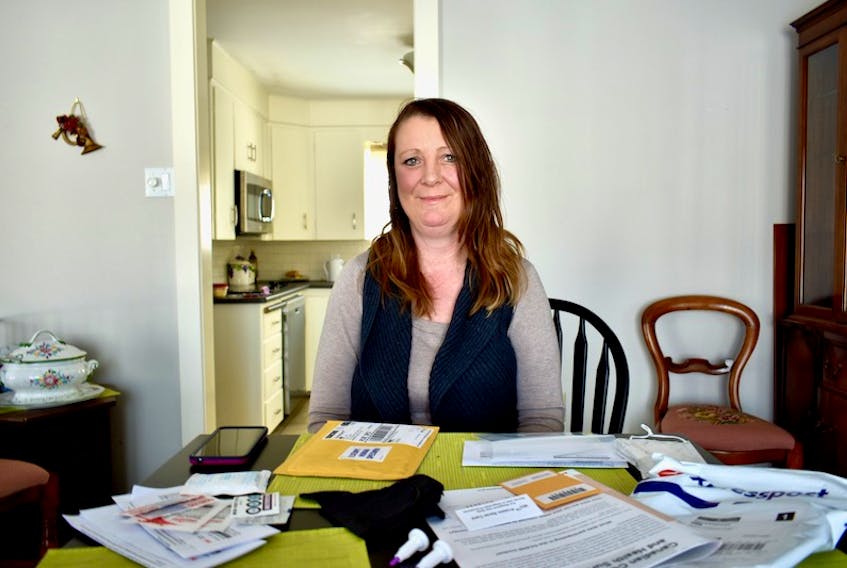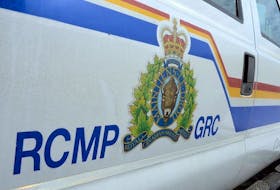LeeAnne Murray was one of 1,756 Islanders to receive a dried blood spot collection kit as part of the first wave of the Canadian COVID-19 Antibody and Health Survey.
Murray was surprised to get the package in the mail with supplies and instructions to self-administer the voluntary test on Jan. 7.
Though everything appeared legitimate, she was uneasy, she said.
“I was shocked. I was like, what? They want me to send my blood in the mail?”

The test
Conducted by Statistics Canada in collaboration with the COVID-19 Immunity Task Force, Public Health Agency of Canada and Health Canada, the survey will determine the prevalence of COVID-19 antibodies in the general population.
There will be 48,000 tests sent out across the country by the end of January. About half of P.E.I.’s 3,500 tests were part of the first wave that was sent out earlier this month.
Respondents are asked to prick their fingers with the supplied lancets, put five drops of blood on a dried blood spot card and mail it to the National Microbiology Laboratory in Winnipeg.
Here is what is inside the Canadian COVID-19 Antibody and Health Survey's dried blood spot kit:
- Two single-use rounded T-shaped lancets for ages 8 and up or two single-use flat lancets for 1- to 7-year-olds
- One dried blood spot card
- Two alcohol swabs
- Two gauze pads
- Two bandages
- One pair of gloves
- One dehumidifying pack
- One humidity indicator card
- One small brown envelope
- One large resealable plastic bag
- One small striped plastic bag
- One prepaid postage envelope
Source: Statistics Canada

The data will help researchers strategize moving forward, said Dr. Catherine Hankins, co-chair of the COVID-19 Immunity Task Force.
“I see it as we’re trying to put together this big jigsaw puzzle and trying to figure out where the virus is,” she said. “It’s almost like we can hang everything on this general household representative population survey and just see where we stand now.”
The study will also give researchers a clearer picture of the spread of COVID-19 than current data, said Hankins.
“We’re sort of a bit hampered at the moment because we’re going by our case counts and case counts depend quite a bit on testing frequency.”

Opportunity to help
After getting her test, Murray called Statistics Canada with some concerns around privacy and safety of the sample, but hasn’t gotten a call back, she said.
“I have a lot of questions for them, so I’m definitely not doing anything until I hear from them.”
To ensure the privacy of participants, only Statistics Canada will have the ability to link a sample to a specific person as confidentiality is a top priority, said Erik Dorff, an analyst with Statistics Canada and unit head with the study.
“Confidentiality, for us, isn’t just the how we do business, it’s actually a legal requirement for Statistics Canada.”

Randomness is also key in having a representative sample. The tests have been sent out using stratified randomization. Essentially, using existing information, Statistics Canada segments the population by age, gender and region.
As such, people aren’t able to volunteer to participate.
For those who have been chosen, completing the test is a win-win, as respondents will be able to find out if they have been infected and didn’t know it, said Hankins.
“For people, it’s an opportunity to serve in a small way because you’re providing information that’s useful for decision-making for your province and territory or the country and also you get your own results.”
For those reasons, Danielle Villard, a 21-year-old Head of Cardigan resident, was quick to do the test after reading through the documentation it came with, she said.

"There was no reason for me not to do it and, if it can help somebody, I figured that was great and I’d be happy to help, if I could.”
With the help of her mom, the test was simple to administer, despite a small misstep with one of the needles, she said.
“It stung a bit, but, I mean, people who have diabetes have to prick their finger every day.”









